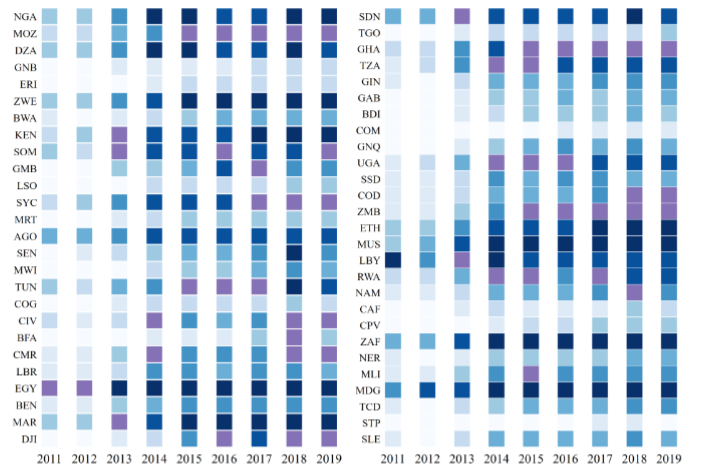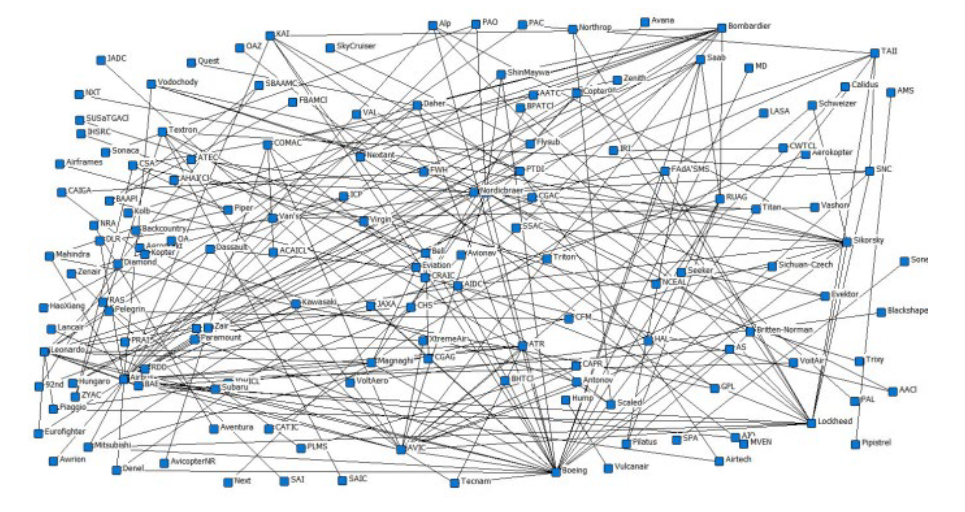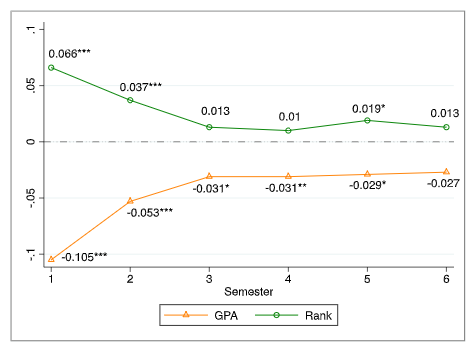The Influence of Ethnic Identity on the Academic Performance of Chinese College Students: An Empirical Study Based on the Administrative Data of a University
Abstract
The policy of ethnic equality and solidarity aims to narrow the ethnic gap and develop harmoniously. At the level of higher education, it should promote the equity of ethnic education. This paper uses the administrative data of undergraduate students from 2008 to 2015 in a liberal arts university in southwest China to study the differences, causes and dynamic trends in the scores of college students from different nationalities. The results show that compared with Han students, the average GPA of ethnic minority students is 0.13 points lower (equivalent to 0.23 and 0.3 standard deviations of the scores of ethnic minority and Han students), the fourth grade scores are 0.28 standard deviations lower, and 7.3% lower. This difference is more significant in the western region, especially in Xinjiang, Yunnan, Hubei and other provinces inhabited by ethnic minorities; Kazak and uygur are the nationalities with the biggest gap with han students; The difference between girls is more significant than that between boys. The "peer effect" and cultural distance between roommates are important reasons for this difference. Further analysis shows that although the ethnic differences in academic performance are gradually expanding, the growth rate tends to converge. The above conclusions are helpful to clarify the object and time of making national higher education policy, and also have important reference significance for primary and secondary education.
Cite This Paper
Wang, Z. (2022). The Influence of Ethnic Identity on the Academic Performance of Chinese College Students: An Empirical Study Based on the Administrative Data of a University. Review of Economic Assessment, 1(1), 1. doi:10.58567/rea01010001
Wang, Z. The Influence of Ethnic Identity on the Academic Performance of Chinese College Students: An Empirical Study Based on the Administrative Data of a University. Review of Economic Assessment, 2022, 1, 1. doi:10.58567/rea01010001
Wang Z. The Influence of Ethnic Identity on the Academic Performance of Chinese College Students: An Empirical Study Based on the Administrative Data of a University. Review of Economic Assessment; 2022, 1(1):1. doi:10.58567/rea01010001
Wang, Zerong 2022. "The Influence of Ethnic Identity on the Academic Performance of Chinese College Students: An Empirical Study Based on the Administrative Data of a University" Review of Economic Assessment 1, no.1:1. doi:10.58567/rea01010001
Show Figures
Share and Cite
Article Metrics
References
- Barkindo, H. M., Shehu, I. Y., & Aliyu, M. M. (2018). Relationship between Parents’ Socio-economic Background, Parental Involvement and Students’ Academic Performance in Higher Institutions of Learning in Adamawa State, Nigeria. Proceedings of ICGET, 25-29.
- Blatt, L., & Votruba-Drzal, E. (2021). District-Level School Choice and Racial/Ethnic Test Score Gaps. American Educational Research Journal, 0002831221999405.
- Boen, C., Keister, L., & Aronson, B. (2020). Beyond Net Worth: Racial Differences in Wealth Portfolios and Black–White Health Inequality across the Life Course. Journal of health and social behavior, 61 (2), 153-169.
- Cassidy, A. (2020). Ethnicity, Parenting Styles, and Adolescent Health Behaviours Doctoral dissertation, University of Glasgow.
- Condon, B. P., Worley, P. S., Condon, J. R., & Prideaux, D. J. (2017). Student Academic Performance in Rural Clinical Schools: The impact of Cohort Size and Competition. Medical teacher, 39 (3), 262-268.
- Fahle, E. M., Reardon, S. F., Kalogrides, D., Weathers, E. S., & Jang, H. (2020). Racial Segregation and School Poverty in the United States, 1999–2016. Race and Social Problems, 12 (1), 42-56.
- Fang, Y., Wang, Q. (2019). A Study of Higher Education Equality and Its Realization Paths for Ethnic Minorities in China: from the Perspective of Equal Access to Education, Journal of Research on Education for Ethnic Minorities 30 (02): 42-49. (in Chinese).
- Henry, D. A., Betancur Cortés, L., & Votruba-Drzal, E. (2020). Black–White Achievement Gaps Differ by Family Socioeconomic Status from Early Childhood through Early Adolescence. Journal of Educational Psychology, 112 (8), 1471.
- Hirata, G., & Soares, R. R. (2020). Competition and the Racial Wage Gap: Evidence from Brazil. Journal of Development Economics, 146, 102519.
- Kermanshachi, S., & Safapour, E. (2017). Assessing Students' Higher Education Performance in Minority and Non-minority Serving Universities. In 2017 IEEE Frontiers in Education Conference (FIE) (pp. 1-6). IEEE.
- Kuhfeld, M., Condron, D. J., & Downey, D. B. (2021). When Does Inequality Grow? A Seasonal Analysis of Racial/Ethnic Disparities in Learning from Kindergarten through Eighth Grade. Educational Researcher, 50 (4), 225-238.
- Ma, L., Bu, S. (2019). The Effects of the Independent Addmission Policy of Talents Selection in Chinese Elite Universities, Peking University Education Review 17 (02): 109-126+190. (in Chinese).
- Nguyen, H. T., Connelly, L. B., Le, H. T., Mitrou, F., Taylor, C. L., & Zubrick, S. R. (2020). Ethnicity Differentials in Academic Achievements: The Role of Time Investments. Journal of Population Economics, 33, 1381-1418.
- Niemesh, G. T., & Shester, K. L. (2020). Racial Residential Segregation and Black Low Birth Weight, 1970–2010. Regional Science and Urban Economics, 83, 103542.
- Pilkington, A. (2018). The Rise and Fall in the Salience of Race Equality in Higher Education. In Dismantling Race in Higher Education (pp. 27-45). Palgrave Macmillan, Cham.
- Pratiwi, I. A., Zulianti, H., & Rohimah, S. (2020). The Influence of Read Cover Remember Retell (RCRR) towards Students’ Reading Ability at the First Semester of Eleventh Grade of Mas Nurul Islam Jati Agung in 2020/2021. Journal of English Education Students, 1 (1), 1-19.
- Schindler, D., and Westcott, M. (2021). Shocking Racial Attitudes: Black GIs in Europe, The Review of Economic Studies, 88 (1), 489-520.
- Schneider, B. (2018). Parents, Their Children, and Schools: An Introduction. In Parents, their children, and schools (pp. 1-12). Routledge.
- Sutton, M. Y., Anachebe, N. F., Lee, R., & Skanes, H. (2021). Racial and Ethnic Disparities in Reproductive Health Services and Outcomes, 2020. Obstetrics and Gynecology, 137 (2), 225.
- Veldkamp, S. A. M., Zondervan-Zwijnenburg, M. A. J., van Bergen, E., Barzeva, S. A., Tamayo-Martinez, N., Becht, A. I., ... & Hartman, C. (2020). Parental Age in Relation to Offspring’s Neurodevelopment. Journal of Clinical Child & Adolescent Psychology, 1-13.
- Wang, C., Xiao, A. (2019). Social Networking and Academic Performance Within Classroom: An Experimental Study of Random Seating, China Economic Quarterly, 18 (03): 1123-1152. (in Chinese).
- Wang, J., Zhang, H., Li, Z., Yin, H., Zhang, Z., (2011). Comparative Study of Teacher-student Interaction under Multi-nationality Cultural Background: Taking the Classroom Teaching in Han,Tibetan,Hui,and Uighur Regions as Examples, Educationa research, 32 (09): 68-75. (in Chinese).
- Wang, Z., and Zhao, G. (2021). Cultural Integration among Non-Han Migrants in Urban China: To What Extent does Intermarriage Matter, Growth and Change, 00, 1–23.
- Wu, J., Wu, G., Li, B. (2021). Can Early-life Health Input Boost Children’s Long-life Cognitive Ability, China Economic Quarterly, 21 (01):157-180. (in Chinese).
- Wu, Y., Zhang, F. (2020). The Health Cost of Attending Higher-achievement Schools:Peer Effects on Adolescents' Academic Performance and Mental Health, Educationa research, 41 (07): 123-142. (in Chinese).
- Xu, Y., A, H., Yan, H., Yu, B., Chen, X., Li, S. (2017). Influential factors of acculturative stress among Xinjiang Kazak students studying in inland cities of China, Chinese Journal of Public Health, 33 (04): 642-646. (in Chinese).


